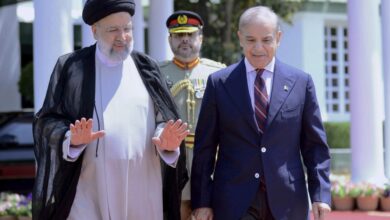Global solar projects set to win more than $380 billion investment this year

Global solar projects set to win more than $380 billion investment this year
Dr. Ajay Mathur, the Director General of the International Solar Alliance (ISA), highlighted the significant rise in investment in global solar energy projects, with projections indicating a substantial increase to over USD 380 billion for the current year. Speaking on the sidelines of the Singapore International Energy Week, Dr. Mathur noted that investment in solar energy has been steadily growing, with a marked increase from the total investment of USD 310 billion in the previous year to USD 235 billion in the first half of the current year.
These figures suggest a growing global commitment to the development and expansion of solar energy infrastructure. The surge in investment underscores the increasing focus on renewable energy sources and their potential to address the world’s energy needs sustainably. As solar energy continues to gain prominence as a viable and environmentally friendly alternative, the trend of rising investment is expected to drive further advancements and innovations in the solar energy sector.
![20 Most Overlooked Solar Energy Benefits for Global Sustainability [List]](http://solarvest.my/wp-content/uploads/2020/04/slider-00.jpg)
Dr. Ajay Mathur emphasized the International Solar Alliance’s (ISA) mission to promote solar energy adoption in its member countries, aiming to establish solar energy as the preferred energy source across the globe. With an expected increase in ISA’s member countries from 116 to 120 by the end of the year, the organization is working towards widespread solar energy implementation worldwide.
Dr. Mathur also highlighted the need for increased investment in smaller solar plants to ensure access to remote regions. He noted that a significant portion of the investment, around 74 percent, has been directed toward large-scale projects in the Organization for Economic Cooperation and Development (OECD) countries and China.
 To achieve a more balanced distribution of solar energy resources, it is crucial to direct investments toward smaller-scale projects that can cater to the energy needs of remote and underserved regions. This approach aligns with the overarching goal of making solar energy accessible and affordable for all, regardless of geographical location or economic status.
To achieve a more balanced distribution of solar energy resources, it is crucial to direct investments toward smaller-scale projects that can cater to the energy needs of remote and underserved regions. This approach aligns with the overarching goal of making solar energy accessible and affordable for all, regardless of geographical location or economic status.
Dr. Mathur shed light on the disparity in investment distribution, emphasizing that the entire African continent has received only a small fraction, approximately 2-3%, of the total solar energy investment funds. Furthermore, he highlighted the significance of diversifying investments into various energy storage solutions, including solar, hydro, and battery technologies, to ensure a more comprehensive and sustainable energy infrastructure.
The International Solar Alliance (ISA) is dedicated to enhancing capacity building initiatives, focusing on training and certifying individuals to effectively implement and design solar projects in the future. Dr. Mathur stressed the importance of educating financial institutions on the evaluation of loan applications for solar development, underscoring the need for financial expertise in facilitating the deployment of solar projects.
In collaboration with member countries, the ISA provides comprehensive support throughout the project management process, offering guidance in policy formulation and regulatory framework development essential for fostering a conducive environment for solar energy deployment. This multi-faceted approach reflects the ISA’s commitment to promoting equitable and sustainable solar energy adoption globally.
Dr. Mathur underscored the growing involvement of Middle Eastern nations in the advancement of renewable energy, citing the significant contributions of Abu Dhabi Future Energy Company, MASDAR, which has actively invested in renewable energy ventures across 40 countries since its establishment in 2006.
“We have witnessed the emergence of fresh investments in solar energy initiatives in countries such as Oman and Saudi Arabia,” he remarked. “These entities are set to become the prominent solar energy producers of the future.” Dr. Mathur emphasized the importance of addressing concerns related to return on investment for private sector stakeholders, particularly highlighting their apprehensions about engaging in project developments in Africa.
He highlighted that the default rate in the entire African region has been less than 2%, primarily associated with delayed payments rather than non-payments. A comprehensive payment guarantee system has been established to assure investors of the reimbursement of their investments, he added.
Dr. Mathur stressed the necessity for the aggregation and consolidation of resources for small-scale projects and the establishment of an inclusive ecosystem across developing nations. He highlighted the World Bank’s special line of credit, noting the global recognition that ensuring the success of the energy transition requires the inclusion and empowerment of all regions, including Africa, in the long-term developmental process.






